FREQUENTLY ASKED QUESTIONS ON GOAT PRODUCTION
What are the benefits of Goat Farming?
Goats are fast maturing and thus have a high turnover coupled with low production costs i.e. easy maintenance and less capital when compared to other domestic animals. Goat products are healthy and digestible. Goat products such as milk and meat are not only easy to digest but are also a major source of income for poor, and smallholder farmers. Goats have a high feed conversion efficiency and will feed on many different types of plants. Goats are not only friendly by nature, but they are also excellent breeders as they reach sexual maturity at 7-12 months of age and they give birth after gestation period of 5 months.
Which are the common breeds of Dairy Goat in Kenya?
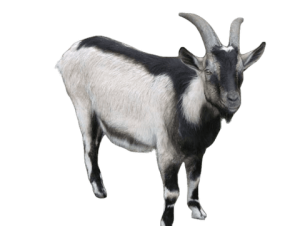 |
Alpine | This breed originated from France in the Alps. These goats are hardy and can easily adapt to any climatic condition. They are best in terms of milk production, with top goats producing up-to 6 liters per day. Because of the high milk production, this breed has high nutritional needs. |
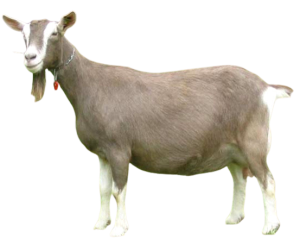 |
Toggenburgs | It is one of the most productive breeds of dairy goats. It originated from Toggenburg valley in Switzerland. It has brown to grey color with white legs and white at the base of the tail. Their face is straight and the ears are erect. Well-bred buck can weigh up-to 70Kgs and the doe up-to 55Kgs. |
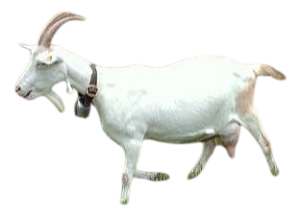 |
Saanen | This breed originated from Switzerland in the Saanen Valley. These goats have short, white hair and upright ears, and are known for their easy-going temperament. Saanen produces more milk than Alpine. They are the highest milk producers among dairy goats but are smaller than the Alpine. Does can weigh 65Kgs. This breed is sensitive to excessive sunlight and thus is better off in cooler climatic condition. |
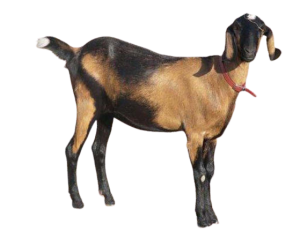 |
Anglo-Nubian | This breed was developed in Britain through crossing British goats with bucks of African and Indian origin. Anglo-Nubian goats are easily recognizable due to their long, floppy ears that hang close to the head and convex “Roman nose” muzzle. They have a longer breeding season. This is an all-purpose breed raised for meat, milk and hide production. It is the best suited dairy goat breed to hot climatic conditions due to their Middle Eastern heritage. |
Which are the common breeds of Goat meat in Kenya?
The following are the common breeds suited for commercial and profitable meat goat farming in Kenya:
| Small East African Goat | Galla Goat | Anglo-Nubian | Boer |
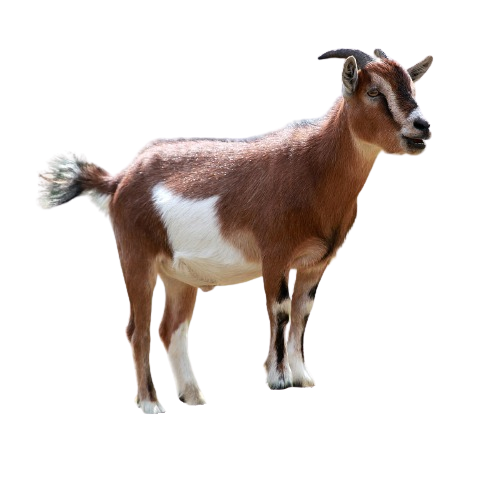 |
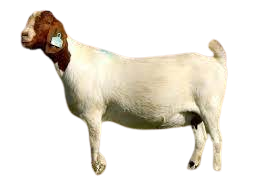 |
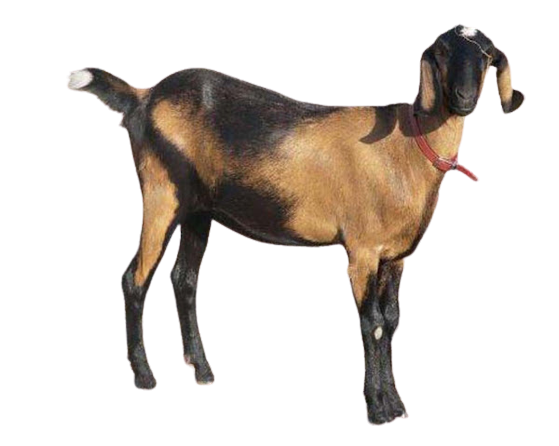 |
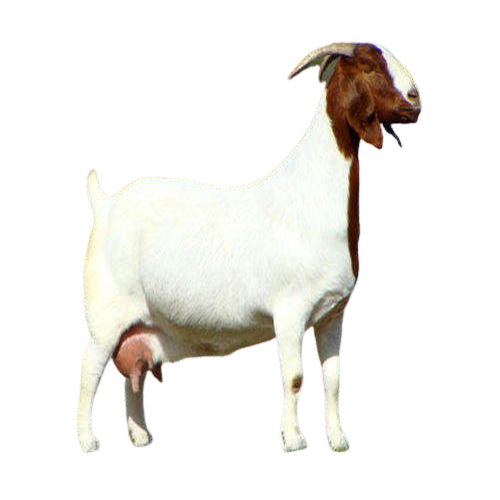 |
Which breeds do you currently have?
The available breeds currently include Saanen, Toggenburg and Alpine but we are in the process of introducing other breeds like Boer, Galla and Anglo-Nubian goats.
How do you make sure that the farmers get your product?
KAGRC has appointed agents all over the country who normally get KAGRC products (semen, liquid Nitrogen and AI equipment) and distribute the same to AI service providers in their locality who in turn provide the AI services to the farmers. KAGRC has also signed MOUs with county governments for the provision of a services to the counties.
Can your products be sold outside the country?
Yes. The Centre is ISO 9001:2015 QMS certified and thus KAGRC products & services meet international quality standards and can be exported to any country in the world. Vision of services to the counties.
Apart from sale of Goat Semen, what other services are offered by KAGRC?
Sale of bull semen from various breeds:
|
Sale of buck semen from various breeds:
|
Sale of Liquid nitrogen. |
| Sale of AI equipment and accessories at subsidized prices. | Own farm semen collection and storage. | Testing of liquid nitrogen containers. |
| Refresher training on safe handling of semen, liquid nitrogen and A.I equipment | Assisting Counties in reviving the County A.I programs. | Extension services to farmers through field days, A.S.K Shows, exhibitions and mass media. |
Who can do Artificial Insemination in goats?
For somebody to be allowed to do Artificial Insemination in Kenya, they must be registered by the regulatory body: Kenya Veterinary Board (KVB)
For more information, get in touch with KVB via
Email: info@kenyavetboard.or.ke
+254 722 305 253 or +254 701 581 718
What is the success rate of AI in Goats?
The success rate of AI in goats ranges from 50-70%. However, it is largely dependent on the skill of the technician, semen quality, semen handling and timing of insemination. There is also variance in fertility among breeds and individuals.
Where can I get good quality semen?
Quality tested semen is available from a number of KAGRC agents and County Veterinary offices in Kenya, giving service in the field of Artificial Insemination.
What are the benefits of using Artificial Insemination in Goats?
Some of the benefits of using AI instead of natural mating in goats are as follows;
- Artificial Insemination eliminates the cost and bother of maintaining bucks
- AI increases the rate of genetic improvement through maximal use of superior bucks
- AI increases the number of does to which a buck could be bred
What are the common products from Goats?
Many farmers rear goats for the purpose of milk, meat, cheese, fiber and hide production. Goat manure is also a useful by-product in goat business
Where can I get market for Goat products from my farm?
Potential markets for goat products include hospitals, hotels/restaurants, milk and meat processors.
